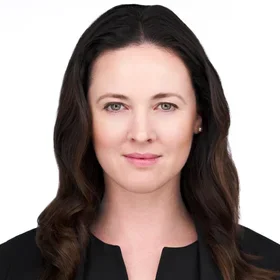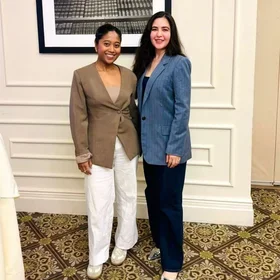As a veteran advertising producer, Michelle Jackson (‘11SPS, Negotiation and Conflict Resolution) has built a career on her ability to navigate the often-fractious creative process and facilitate productive collaborations. When she became involved in her NYC neighborhood’s community garden and recognized the similar group dynamics at play, she followed a growing fascination with the way people work together to the M.S. in Negotiation and Conflict Resolution at Columbia University. Jackson recently talked about how she applies the program’s principles and practical tools in her efforts to promote collaboration at the grassroots level.
What did the program teach you that applied to your work in advertising as well as your work in your neighborhood’s community garden?
It was 2008 when I started community gardening in Central Harlem. I’d moved into the neighborhood a few years earlier and was looking for ways to engage with neighbors, so community gardening was the way I did that. The program focuses a lot on being self-aware and grounding yourself in a situation so you can see what’s going on around you. We learned systems, cooperative behavior and integrative negotiation. There was also practical training on how to facilitate conversations and to move ideas forward when something’s stuck. For me, theory was helpful in understanding, but the practical applications were the most important pieces. What I learned was immediately applied in all of my work.
How do you think the program helped to advance your career?
It solidified my interests in organizations and management. I work with corporations, a cooperative, not-for-profits, grassroot organizations, city agencies, educational institutions and with individuals. Different organizations run differently based on what their values and interests are, so having a skillset that applies broadly is super helpful.
We learned systems, cooperative behavior and integrative negotiation ... For me, theory was helpful in understanding, but the practical applications were the most important pieces. What I learned was immediately applied in all of my work."
Tell me about your project Seeds to Soil.
Seeds to Soil is a fiscally-sponsored project of the 501(c)3, Prime Produce Ltd. Its mission developed out of my NECR Capstone project; I collaborated on a video series highlighting neighbors’ efforts to support urban agriculture and urban ecology and co-developed a platform for people to communicate around gardening.
Years later, Seeds to Soil has developed into a collective of people coming together to use their respective skills to work on projects that focus on urban agriculture and urban ecology. Our projects highlight the positive impacts that growing plants can have on people’s well-being and the creativity that comes out of working together while supporting the urban environment around us. Our primary goals are to share knowledge, materials and support. We design and manage garden projects and we host volunteer days, events, workshops, and dinners while partnering on existing urban agriculture and ecology initiatives that include citizen science projects, oral history and field research.
How has your role at Seeds to Soil shifted in the face of COVID-19?
COVID-19 stay-at-home mandates moved us into a distributed model of care for our plants and projects. It was an idea that we had been conceptually thinking about for a few years. Our seed station for our rooftop herb garden moved to a backyard in Brooklyn and our rooftop milk crate pollinators field separated into two projects: Tiny Plots Project and The Pollinators Bench. Tiny Plots is a distributed milkcrate community garden where we offered milkcrate planters to local neighbors to provide space to grow foods, herbs, and flowers in their apartments and outdoor spaces. The Pollinators Bench is a sidewalk pollinators garden where we invite people to slow down and to take a break. It’s a bench surrounded by milkcrate planters full of perennial pollinator flowers. Then there is our indoor Mushroom Chamber which is part of a partnership with Cornell Small Farms Program. We cleaned and shut down the chamber and distributed the mushroom blocks to community gardeners in and around NYC. The hyper-localization of the plants' care increased the possibility of their survival during COVID-19 while providing a positive boost to the plant-caregivers’ mental well-being. The last thing that we did was offer support to environmental public space organizations, providing them with Zoom orientation trainings on the basics of Zoom and ways to increase participant engagement and democratic processes in virtual meetings.
What advice would you give to a new NECR graduate who is looking for career opportunities?
Figure out what your narrative is—how to explain who you are and how the skills you’ve learned can be valuable and in what context. The skills we learned in the program can be broadly applied to all types of situations, so providing context helps organizations to understand how you can help them.
Learn more about the Master of Science in Negotiation & Conflict Resolution at the Columbia University School of Professional Studies.
Figure out what your narrative is—how to explain who you are and how the skills you’ve learned can be valuable and in what context. The skills we learned in the program can be broadly applied to all types of situations, so providing context helps organizations to understand how you can help them."


